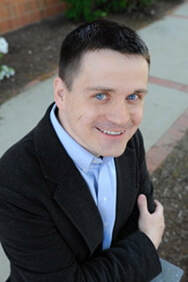|
FIRST PLACE
Jump Shots at Sixty Robert Claps I could take a ride down Route 5 again, pull up to the rims rusting between the Catholic church and the train tracks, I could ignore the fleeting back pain and dismiss my doctor's good advice by dribbling down the length of the court, dodging the broken glass and chunks of asphalt, and stopping just inside what's left of the foul line for a jump shot, a little mid-range one that I will take for my father, for his wavy black hair slicked back and shining, and that tipsy Dean Martin weave he did at weddings, crooning "Send Me A Pillow To Cry On" to all the women, and maybe a shot off the backboard for the day he took me and my first love to the state fair with the side money he made fixing cracked engine blocks, and here, at the wing, a fade-away for his first-born infant's grave, and his brother's three rows down, and a baseline shot for the blessed plastic statue he kept on the dashboard of his '62 Chrysler New Yorker, a miniature Jesus that couldn't save him from the thorazine and dozens of electric shocks at the West Haven V.A., and how about a Dave Cowens shot, that half-hook, half-jumper, for the million Camels and the nips of Seagram's despite the strokes and the amputated toes, and a Hail Mary for the black-and-white of him waving from a troop train leaving for Quantico, 1943, his eyes cast down as if looking for a sign, the way his eyes looked down at the waxed floor when I left him yesterday, gripping his walker in a room he shares with strangers, for that photo I keep on my desk, a final lob from three-point land, my right elbow tucked in tight, making the ball arc so high I can whisper a prayer in the moments before it falls back to earth. Judge's comment: This poem offers a poignant meditation on memory, love, and aging. It reimagines a street basketball court as a place of worship––not in a religious sense, necessarily, although there are traces of that here, but rather a spiritual one. The speaker in “Jump Shots at Sixty” sweeps us into a whirlwind of memories conjured up by “the rims rusting between the Catholic church and the train tracks” and deftly uses the game’s various shots as metaphors and memory triggers that lead us through a father's life all the way to the facility where he now lives "gripping his walker in a room he shares with strangers." This is a well-crafted, emotionally urgent, yet understated piece most deserving of this award. SECOND PLACE Time Rises Like a Flood Lynn McGee It’s isn’t the loss of you I resist, but the forgetting, reaching into dark water and finding nothing. Rain drums against the eaves, but April was effusive and sunny when you died. Your daughter sat cross-legged on the floor of a waiting room, pushing cars across the carpet. Your sons passed a Gameboy back and forth, divers sharing air. Your children completed themselves, without you. I see your wary intelligence in their lean faces. I’m willing myself to hear you clear your throat, to watch you rub lotion, absent-mindedly, up the backs of your arms. I inhabit your memory, lacing my feet into your boots, putting my hands on the steering wheel where your hands warmed it-- but that sense of you lingering, is gone. That panic that you’re lost, somewhere, is gone. Water rises between us, weaving its layers. Judge's comment: “Time Rises Like a Flood” bears witness to the pain of loss and shows how we can and must keep going. It allows us to listen in on an imagined conversation between the living and the dead in which the speaker “inhabits your memory,/ lacing my feet into your boots, putting my hands/ on the steering wheel where/ your hands warmed it”––the kind many of us have ached to have at some point. This is a brave, attentive, and wise poem. THIRD PLACE A Last Visit Linda Conte He gamely tries to dandle my son, his grandson, on his knee, knowing I’d want that, to see them together-- though next time we know he won’t be strong enough and I won’t bring my son. He tries to tell me some story from when he was young. He knows I like those and he produces a photo taken out in preparation for our visit. It must have been one of the first cars his family ever owned, a Model A Tudor Sedan, but the people in the photo weren’t anyone I’d have known. A one-time Lieutenant Colonel setting traps for Hitler’s forces he quietly declares he’s tired, and makes his way to bed while Mom and I hover behind lest he should fall. Judge's comment: “A Last Visit” gives us a rare glimpse inside the mutual gestures of love exchanged between a frail, aging father who bounces the speaker’s son on his knee “knowing I’d want that” and takes out old photos because “he knows I like those” and son who follows closely behind him on his way to bed “lest he should fall.” This is deeply moving poem, a fine example of art that shows instead of tells. HONORABLE MENTION Roy Bentley for “Back in Baby’s Arms” Lillo Way for “Flying” |

Contest Judge Daniel Donaghy
Daniel Donaghy is the author of the poetry collections Somerset (NYQ Books, 2018), Start with the Trouble (University of Arkansas Press, 2009), and Streetfighting (BkMk Press, 2005). Raised in Philadelphia, he is now Professor of English at Eastern Connecticut State University, where he has received the Board of Regents Teaching Award and the CSU Norton Mezvinsky Trustees Research Award. He is currently the Poet Laureate of Windham County. |